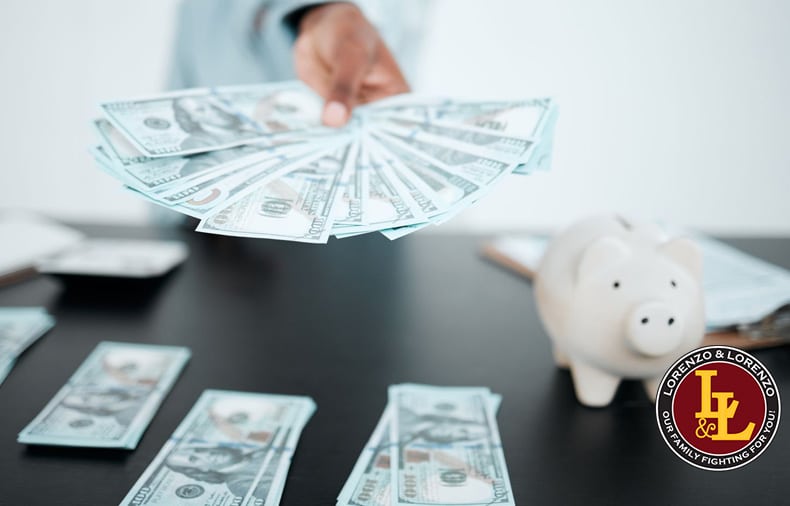
Learn who pays when someone borrows your car and gets into a car accident in Florida
Anyone can get into a car accident at any time — even a friend or family member who you trust to drive your car. If you lend your vehicle to a loved one and an accident occurs, regardless of who’s at fault, it’s important to take the right steps to ensure you’re legally protected under Florida law.
Insurance Coverage and Permissive Use
Whether the driver is covered under your auto insurance policy depends on your specific policy. However, in general, anyone who lives in your house will be covered by your insurance policy when driving your vehicle. In fact, many insurance companies require that everyone in your household of driving age is listed on your policy.
In most cases, a friend who you’ve let use your vehicle is also covered under your auto insurance policy. The “permissive use provision” covers those who might borrow your car on occasion.
Insurance Follows the Vehicle
The idea that the insurance policy follows the driver is a myth; it actually follows the vehicle. If you loan someone your car, your insurance policy should provide primary coverage in the case of an accident, while the driver’s insurance would provide supplemental secondary coverage.
For example, say you lend a friend your car and they get into a fender bender accident. If police determine he is at fault in the incident, you would be responsible for filing a claim for the accident with your insurance company, paying the deductible, and paying any resulting premium increases for your policy. Your friend’s insurance company would be expected to cover costs that exceed your insurance coverage.
If your friend wasn’t at fault in the accident, the other driver’s policy would cover the damages to your car and your insurer wouldn’t be involved.
Exceptions to the Rule
Although insurance follows the vehicle in most cases, it’s important to be aware of a few exceptions to this rule. These include the following:
- If you have explicitly excluded a person in your household from coverage under your insurance policy and he or she drives your car anyway, then your insurance will likely refuse to pay for damages that ensue if a crash occurs.
- If your car is stolen and an accident occurs, you won’t be responsible for the other party’s vehicle and medical damages. Your insurance company would typically cover damages to your vehicle.
- If a friend or family member uses your car without permission, your insurance company would cover costs exceeding the coverage provided first by his or her insurance policy.
- If the person in question doesn’t have car insurance, your insurer would be liable.
Additional Liability Concerns
In certain cases, you may be held personally liable if an accident that occurs in your vehicle exceeds your insurance coverage. For example, you could be sued for damages that occur in an accident if you allow an unlicensed driver or a driver who’s under the influence of drugs or alcohol to operate your vehicle.
He said she said car accidents: How lending someone your car can complicate an accident claim
In Florida, accident claims involving a vehicle you lent to a family member or friend can become notably complex, particularly when it comes to determining who was at fault for the incident.
This complexity is often heightened if the vehicle’s owner, who was not present during the accident, finds themselves caught in a “he said she said car accident” scenario. Without clear evidence or witnesses, these situations often devolve into disputes where each party involved in the accident provides a conflicting account of events, making it challenging for the owner to discern the truth and potentially affecting their insurance claim.
In such cases involving serious injury, enlisting the help of an attorney early on in the process to gather evidence, such as traffic camera footage, witness statements, and expert testimonies, is essential to constructing a clear picture of the accident and protecting your rights.
A Guide to Florida Auto Insurance Requirement & Laws
How much car insurance are you legally required to have when driving in the state of Florida?
Steps to Take When an Accident Occurs
Before loaning out your vehicle, it’s important to thoroughly understand the coverage provided by your insurance policy. If the person isn’t covered by your policy, doesn’t have his or her own insurance, is clearly intoxicated, or doesn’t have a driver’s license, don’t let him or her borrow your car.
Because Florida is a no-fault state when it comes to car accidents, drivers are required to carry auto insurance that pays personal injury protection (PIP) benefits.
According to Nolo:
“When the policyholder (or anyone else covered under the terms of the policy) is injured in a car accident, PIP pays medical expenses and certain non-medical-related costs associated with the accident — like lost wages and the costs of hiring someone to do household chores (known as ‘replacement benefits’) — up to the coverage limits.”
Because of the personal liability issues at hand, it’s important to consult an auto accident attorney if another individual had an accident while driving your car and liability is contested. This is especially important if he or she did not have permission to take the car or was at fault, unlicensed, or under the influence. Legal advice is necessary to protect your personal assets from seizure in a lawsuit.
If you live in the Tampa area, contact Florida car accident attorneys at Lorenzo & Lorenzo as soon as possible. We offer free case valuations to help you navigate the legal process and explore your options at no cost to you other than your time. Contact us today before your case expires.
The hidden costs of a car accident
Car accidents aren’t just about repair costs. Learn about the unexpected expenses of a car accident so you can get the most from your personal injury claim.








